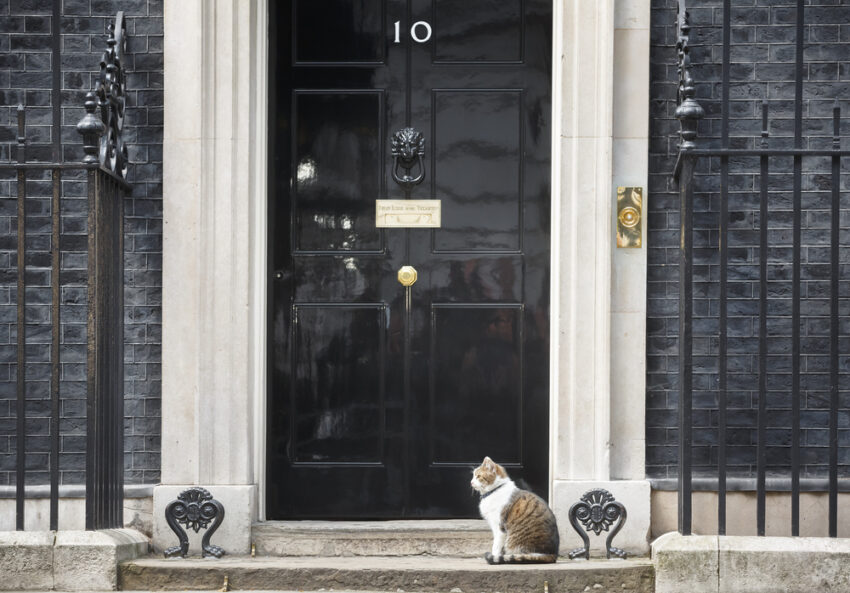Rumour has it that Rachel Reeves is limbering up for November with a Budget that will make the taxman’s quill squeak like a stuck pig. Property, pensions, profits, pasties — all grist to the Exchequer’s mill.
The Treasury is leaving no stone unturned, no pocket unpicked, no cupboard unopened. The only thing, one suspects, that remains miraculously safe from her fiscal scythe is Larry the Cat’s supper.
Cat food, so far, has escaped. But give it time. If Reeves wakes up one morning and thinks Felix is a luxury good, then Larry may be forced to reacquaint himself with the vermin of Whitehall.
Which would be, let’s face it, the first proper day’s work he’s done in a decade.
The mood music is grimly familiar. Reeves is billed as Britain’s most hawk-eyed chancellor since Gladstone, scrutinising every allowance and relief with the intensity of a headmistress checking pockets for contraband. She talks of “closing loopholes” and “fiscal responsibility”, which translates as: if you earn it, spend it, save it or feed it to your cat, I want a slice. There is a whiff of the Victorian workhouse about the whole thing — the sense that leisure, comfort, and small mercies are indulgences for which the State must extract a fee.
The thought of Larry’s pouch of Sheba being clobbered with 20% VAT is only half a joke. Reeves hasn’t said it. But given the way she’s nosing through the nation’s shopping basket like a customs officer at Dover, it might only be the fact that she’s scared of the animal-loving electorate that keeps Purina safe from the Chancellor’s paw.
Larry, then, becomes the perfect stand-in for the rest of us. He lives in the lap of political luxury, adored, photographed, never held accountable for his failure to deliver on the “mouser” part of his job title. And yet even he is only one Treasury brainstorm away from being told to pull his weight. The day the food bill doubles is the day Larry starts catching mice again.
And so it is with us. Once pampered, now fleeced, the British taxpayer is being nudged towards self-sufficiency by stealth. First you taxed our booze, then our cars, then our pensions, and now our every side-hustle. Tomorrow it will be our pets, the next day our plants, and eventually our patience.
The truly comic element is not that Reeves might be tempted to tax pet food, but that it has come to feel plausible. When a government makes you believe even the moggy’s supper is at risk, you know you’re in the realm of fiscal parody. It’s like imagining air being metered. Please insert £1 to continue breathing.
If Reeves could work out how to slap a duty on belly rubs or a surcharge on purring, you sense she’d do it before breakfast. The only thing stopping her is the optics of being seen to shake down a cat who has a bigger fanbase than most cabinet ministers.
And yet, strip away the feline froth, and the point is clear: this scattergun approach to taxation is not sustainable. You cannot tax your way to prosperity any more than you can slim by raiding the fridge at midnight. What Reeves needs — but seems reluctant to risk — is growth, investment, something genuinely bold. Instead we get a Budget that looks like the frantic contents of a handbag tipped out on the kitchen table: receipts, half-chewed mints, and a few coins scavenged from the lining.
Larry’s food may survive unscathed this time, but the message is unmistakeable: the Treasury has its nose in our cupboards, its paws on our wallets, and its eye on the cat’s dish. Heaven help us when they start eyeing the litter tray.


